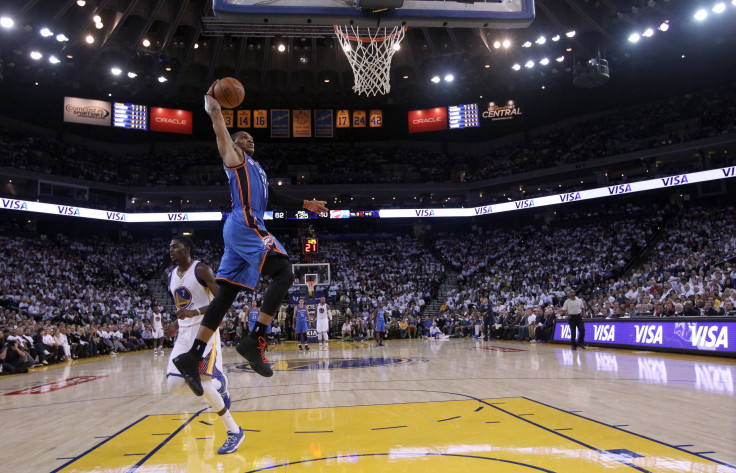NBA On ABC: Can Saturday Night Games Actually Lure Saturday Night Viewers?

The NBA and ABC are hoping basketball fans don’t have much going on the next few Saturday nights. In fact, they’re betting on it.
Beginning this Saturday, the NBA will set off on a journey to become a prime-time broadcast player in what is typically a ratings graveyard. In a move that promises to push the limits of when sports viewers will commit to so-called event television, ABC will air its very first prime-time regular-season basketball game — a divisional battle between the Lebron James-led Cleveland Cavaliers and the Chicago Bulls that's part of an eight-game slate that will run through the end of the NBA's regular season. It's the latest example of sports properties trying to cover every square inch of the national television calendar with their games, and broadcasters seizing every possible opportunity to cover the costs of their TV deals.
These two trends have resulted in a number of recent firsts, including the college football playoffs beginning on New Years' Eve, and ESPN deciding to simulcast its NFL wild-card game. And while it’s too early to tell whether the NBA's big new night will draw an audience, there’s reason to suspect that the NBA’s move might help change Saturday night’s reputation as a no-win TV time slot.
“If anything's going to do that, it's going to be live sports,” said Michael Neuman, managing partner of Scout Sports and Entertainment, a sports media agency.
Historically speaking, Saturday night has been the land of death for TV ratings. Because millions of people are out on the town and socializing, the broadcast networks have mostly given up. In fact, there hasn’t been a single prime-time Saturday show that’s ranked in the top 30 most watched programs on broadcast television in over 10 years.
But live sports do provide an exception. Prime-time college football games, for example, have proved themselves capable of delivering more than respectable audiences. Last November, more than 11 million people tuned in to watch Alabama take on LSU in a prime-time matchup on CBS.
ESPN and ABC, in particular, have seen the kinds of audiences that will turn up for a meaningful prime-time game on a Saturday. Seven of the 25 highest-rated college football games of the 2015 season aired on ABC Saturday night, more than any other broadcaster. Both networks are owned by the Walt Disney Co.
Because the NBA gets going right in the middle of football season, early January is the earliest the NBA could try this. But with college football now done for the season, and the NFL Playoffs about to wrap, there is a brief window for the NBA to find out just how much interest there is in its biggest teams and stars.
Looking at recent numbers doesn’t offer a clear signal of which direction the NBA is trending. While last year’s NBA finals drew the highest ratings the league’s seen in 14 years, ratings through the first few weeks on ESPN and TNT, which carry all of the league’s nationally televised games, were down slightly.
Moving to a larger platform on ABC could cure those problems. “I think the move to ABC, which yields a wider and broader distribution to a larger audience, could also capture a new consumer,” Neuman said.
That will be key, not just for the NBA's long-term growth prospects but for ESPN's ability to turn its brand-new TV deal with the league into a good investment. Starting this fall, with the 2016-17 NBA season, ESPN and TNT, the league's other broadcast partner, will be paying a combined $2.66 billion per year to show these games on TV.
That hefty price tag (nearly three times higher than the price ESPN and Turner were paying under their old deal) does come with more games. And if this experiment works, there's no telling when, or where, ESPN might feel like airing them.
© Copyright IBTimes 2024. All rights reserved.











